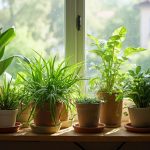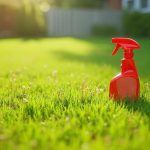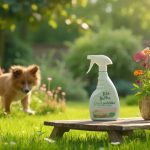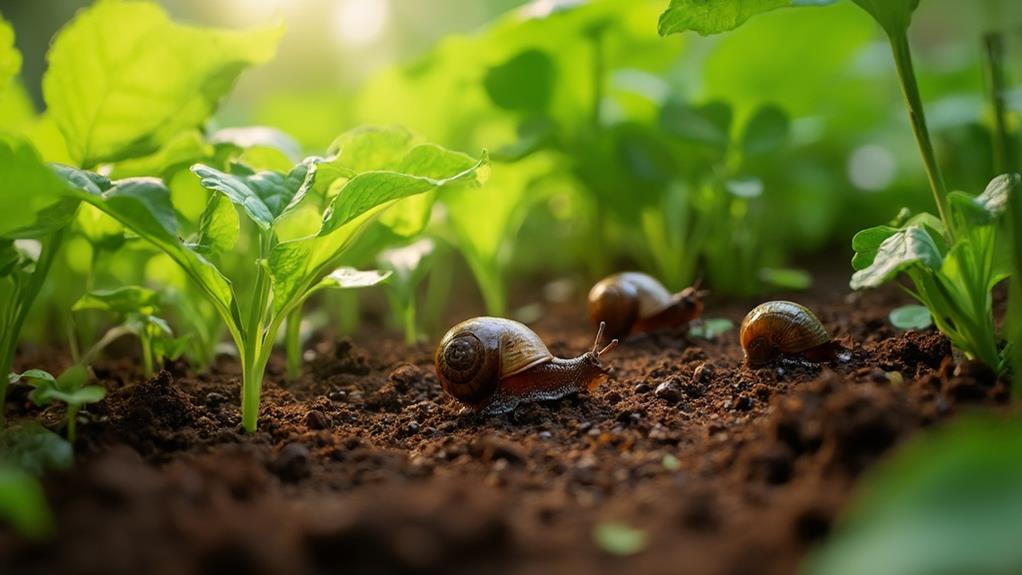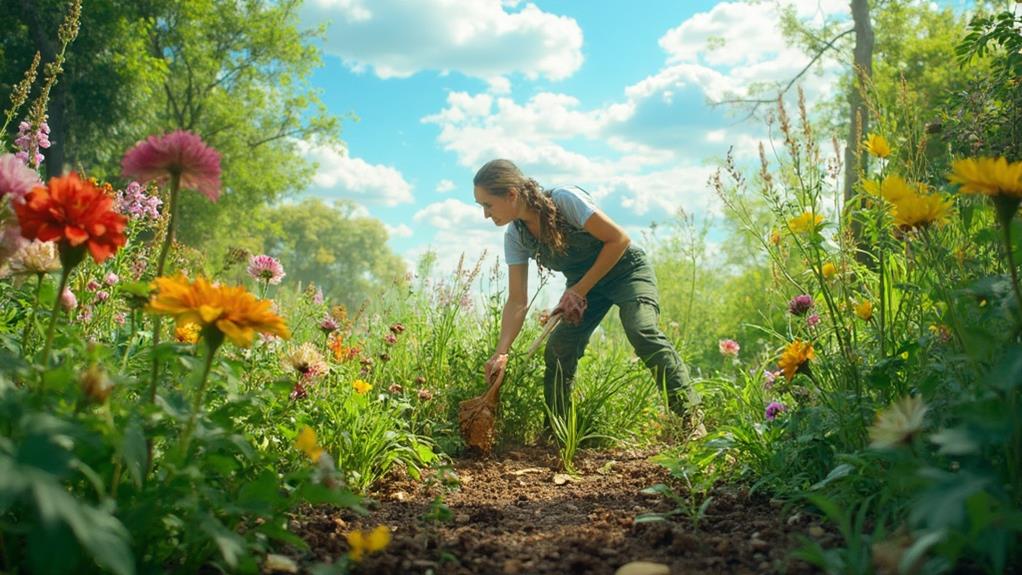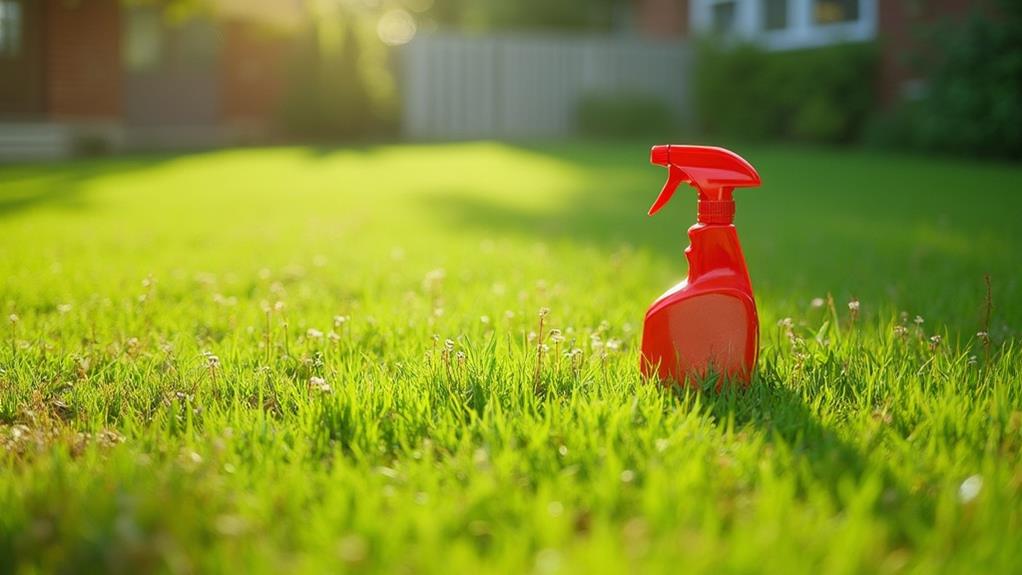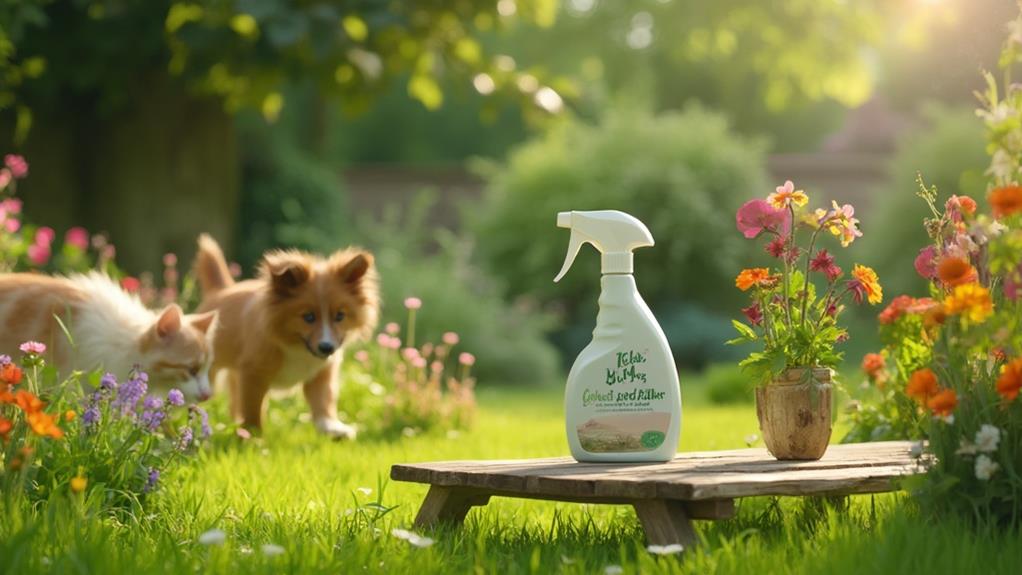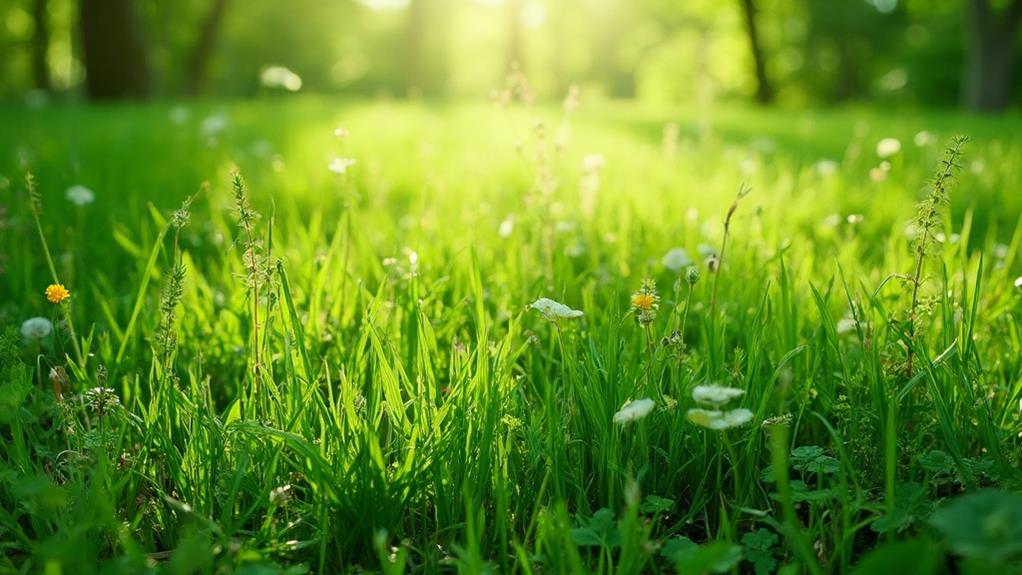When it comes to managing your garden's delicate balance, dealing with slugs and snails can feel like a minor nuisance. You might not realize that coffee, often regarded as a simple pleasure, can serve as a surprisingly effective solution against these pests. By utilizing the caffeine within brewed coffee, you can disrupt their natural behavior and create a less welcoming environment. But how exactly do you harness this everyday item to safeguard your plants while ensuring your gardening efforts thrive? Understanding the methods can greatly enhance your approach.
Key insights
- Brew fresh coffee or use coffee grounds to create a barrier that deters slugs and snails from entering your garden.
- Place shallow containers filled with strong coffee near areas where slugs and snails are active to attract and trap them.
- Refresh coffee grounds or brewed coffee regularly to maintain effectiveness and keep pests at bay.
- Combine coffee with eggshells for an enhanced barrier effect against slugs and snails.
- Monitor traps daily and dispose of captured pests promptly to ensure ongoing pest control.
Understanding Slug and Snail Behavior
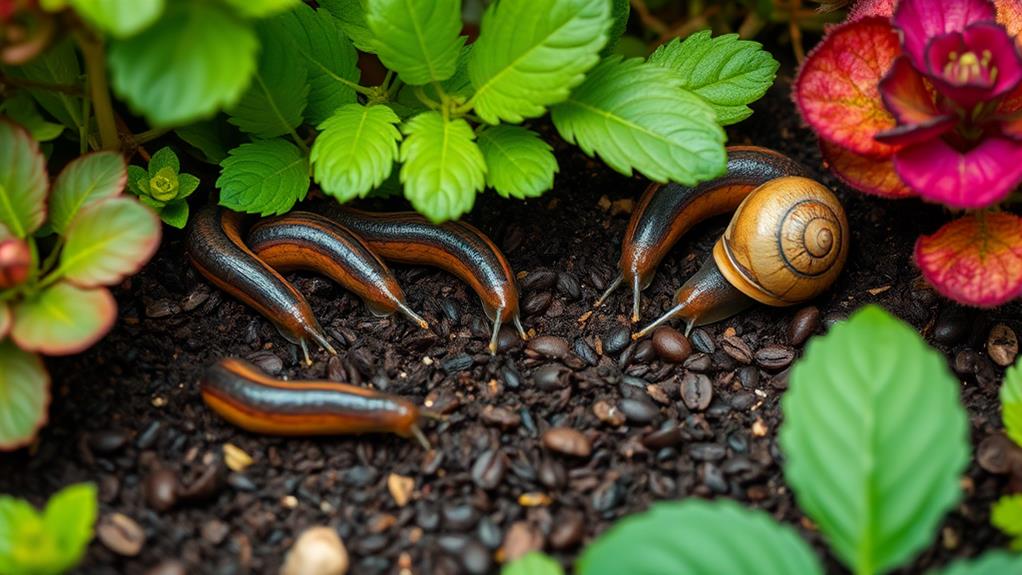
To effectively tackle the problem of slugs and snails in your garden, it's crucial to understand their behavior.
Slugs and snails are primarily nocturnal creatures, emerging mainly at night to feed on your plants. Their slug habits include a preference for damp environments, which means they thrive in areas with high moisture levels. This is why you'll often find them hiding under leaves or in shaded spots during the day.
Snail movement is slow and deliberate, as they glide on a layer of mucus that helps them navigate surfaces. They're attracted to decaying organic matter, which can lead them to your garden.
Understanding these patterns allows you to anticipate their activity and take preventive measures. For instance, you might want to reduce moisture around your plants by adjusting your watering schedule.
The Role of Caffeine in Pest Control
Caffeine, a well-known stimulant found in coffee, plays an unexpected role in pest control, particularly against slugs and snails. Research shows that caffeine exhibits caffeine toxicity in these pests, disrupting their nervous systems and leading to paralysis or death. This property makes caffeine an effective natural deterrent, particularly for gardeners seeking eco-friendly solutions.
When slugs and snails come into contact with caffeine, it affects their ability to move and feed, ultimately encouraging them to avoid areas treated with this substance. You can utilize brewed coffee or coffee grounds to create a barrier that these pests will hesitate to cross.
However, it's essential to apply caffeine in moderation. While low concentrations can repel slugs and snails, excessive amounts could harm beneficial garden organisms and soil health.
Always monitor your garden's ecosystem and adjust your methods accordingly.
Using Coffee Grounds Effectively
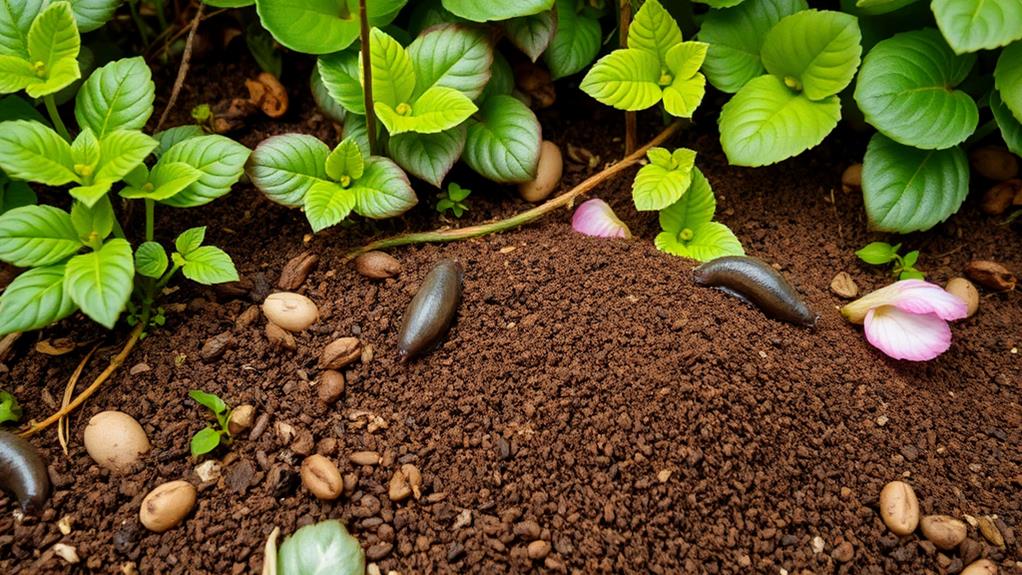
Sprinkling used coffee grounds around your garden can effectively deter slugs and snails while enriching the soil. The coffee ground benefits extend beyond just pest control; they also improve soil structure and provide essential nutrients. To get the most out of your coffee grounds, consider the different coffee ground types you're using.
| Coffee Ground Type | Benefit | Application |
|---|---|---|
| Used Espresso | High nitrogen content | Mix into the soil |
| Coarse Grounds | Improved drainage | Create a barrier |
| Fine Grounds | Moisture retention | Spread evenly |
When applying coffee grounds, make certain you avoid overuse, as excessive amounts can lead to soil acidity. A thin layer, about half an inch, works best. Replenish your supply regularly to maintain effectiveness. Always remember to combine coffee grounds with other organic materials to maximize their benefits. By integrating these practices, you'll create a healthier garden environment that naturally repels slugs and snails while benefiting your plants.
Brewed Coffee as a Deterrent
If you want to keep slugs and snails at bay, brewed coffee can be an effective deterrent. Its natural chemical properties not only repel these pests but can also benefit your garden's health when used correctly.
Let's explore various application techniques and how brewed coffee contributes to a healthier growing environment.
Coffee Grounds Application Techniques
Using brewed coffee as a deterrent can be an effective strategy for managing slugs and snails in your garden. The key lies in how you apply coffee grounds, as their consistency and placement can greatly influence their effectiveness.
Start by sourcing high-quality coffee grounds from local cafes or your home brewing; these are often rich in caffeine, which is a natural repellent for slugs and snails.
When applying the grounds, aim for a coarse consistency. Spread a thin layer around the base of your plants, ensuring it forms a barrier. This texture not only deters these pests but also helps retain soil moisture.
Keep in mind that freshly brewed coffee grounds are more effective than used ones, as they retain higher caffeine levels.
You can also mix coffee grounds with other organic materials like eggshells to enhance the barrier effect. This combination creates a rough surface that slugs find difficult to cross.
Regularly check and replenish your coffee grounds, especially after rain, as moisture can break down the barrier. By implementing these application techniques, you'll create a less inviting environment for unwanted garden visitors.
Chemical Repellent Properties
Harnessing the natural chemical properties of brewed coffee can greatly deter slugs and snails in your garden. The chemical composition of coffee includes compounds such as caffeine and chlorogenic acid, both of which have shown repellent effectiveness against these pests.
When slugs and snails come into contact with brewed coffee, they often experience discomfort, leading them to avoid areas treated with it. Applying brewed coffee directly to the soil or around your plants creates a barrier that these mollusks are less likely to cross.
The bitter taste and strong aroma of coffee serve as deterrents, disrupting their normal feeding behavior. Additionally, the caffeine acts as a neurotoxin to slugs, further enhancing its repellent properties.
For ideal results, you can combine brewed coffee with other natural deterrents, reinforcing its effectiveness. Regularly applying coffee grounds or brewed coffee creates a sustained repellent effect, keeping your garden less appealing to slugs and snails.
Benefits for Garden Health
Brewed coffee not only serves as an effective repellent against slugs and snails but also offers numerous benefits for overall garden health.
By incorporating coffee grounds into your gardening routine, you can enhance soil health and maintain a balanced pest environment. Here are some key advantages:
- Nutrient Boost: Coffee grounds add nitrogen, potassium, and phosphorus to your soil, promoting healthier plant growth.
- Improved Drainage: Mixing coffee grounds with soil improves drainage and aeration, essential for root development.
- Natural Pest Deterrent: The caffeine in coffee can disrupt the nervous system of pests, helping to maintain a natural pest balance without chemicals.
- Attract Beneficial Organisms: Coffee grounds attract earthworms and other beneficial organisms that aerate the soil and break down organic matter, enhancing soil structure.
Creating Coffee-Based Traps
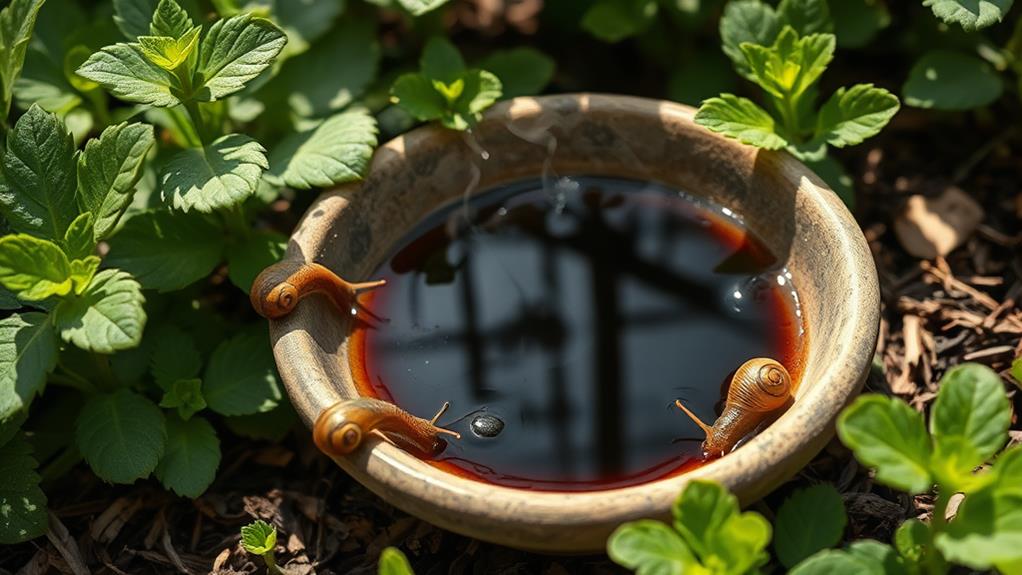
To effectively create coffee-based traps for slugs and snails, you'll want to start by choosing the right type of coffee.
Placement strategies are essential; position your traps in areas where you've spotted these pests.
Choosing the Right Coffee
Choosing the right coffee for your slug and snail traps can greatly enhance their effectiveness. When selecting coffee, consider these factors to guarantee your traps work at their best:
- Coffee Type Selection: Go for high-caffeine varieties. Arabica coffee is popular, but robusta contains more caffeine and is often more effective against slugs and snails.
- Brewing Methods: Freshly brewed coffee will yield better results than instant coffee. Use a drip or French press method to maximize caffeine extraction.
- Concentration: Aim for a strong brew. A higher concentration of coffee increases the likelihood of attracting these pests, making your traps more enticing.
- Additives: Avoid adding sugar or cream, as these can attract other pests. Pure coffee is most effective in luring slugs and snails.
Trap Placement Strategies
Once you've selected the right type of coffee, it's time to set up effective traps to catch slugs and snails. Start by choosing suitable trap types, such as shallow containers filled with coffee mixed with water. This blend attracts slugs and snails, drawing them into the traps.
For ideal trap locations, place your traps near areas where you've noticed slug and snail activity, like garden beds or around plants. Make sure they're hidden from direct sunlight to maintain the moisture levels that these pests prefer.
Consider trap materials; using plastic or glass containers works well, guaranteeing they're durable and easy to monitor.
When setting your traps, remember the importance of trap frequency—check them daily, especially after rainfall, as slugs and snails are more active during wet conditions.
Regular trap monitoring allows you to assess trap effectiveness. If you find traps filling up quickly, it's a good sign that your strategy is working.
Adjust trap locations or add more traps as necessary to maximize your efforts. With a thoughtful approach, you'll greatly reduce the slug and snail population in your garden.
Maintenance and Effectiveness
Effective maintenance of your coffee-based traps is essential for maximizing their efficacy in controlling slugs and snails.
Regular upkeep guarantees that the traps remain attractive and effective in targeting these pests, especially in their preferred slug habitat.
Here are four practical steps to keep your traps functioning at peak performance:
- Refresh the Coffee: Replace the used coffee grounds every few days. Fresh coffee has higher coffee toxicity, which is more effective at repelling slugs and snails.
- Monitor the Traps: Check the traps regularly for any captured pests. Dispose of dead slugs and snails promptly to maintain the trap's effectiveness and prevent foul odors.
- Clean the Area: Remove any debris or organic matter around the traps. Keeping the vicinity clean helps discourage slugs from finding alternative food sources nearby.
- Adjust Trap Placement: If you notice a decrease in catches, consider relocating the traps. Slugs may shift their routes based on environmental changes, so repositioning might help target their movement better.
Additional Natural Repellents
Many gardeners frequently seek out natural repellents to combat slugs and snails, as these pests can wreak havoc on plants. One effective method is garlic spray, which emits a scent that repels these mollusks.
Alternatively, a vinegar solution can deter them due to its acidity, making it unpalatable for slugs and snails.
Diatomaceous earth acts as a physical barrier; its sharp particles damage the soft bodies of these pests. You can also scatter citrus peels around your garden, as the scent is known to repel slugs.
Essential oils, like peppermint or tea tree, can be mixed with water and sprayed on affected areas for added protection.
Beer traps are a popular choice, luring slugs to their demise. Copper barriers can be placed around plant beds since the metal reacts with slime, creating an unpleasant experience for the pests.
Sprinkling sea salt can be effective, but use it sparingly, as it can harm plants. For a more biological approach, consider a nematode application, which introduces beneficial microscopic worms that target slugs.
Best Practices for Application
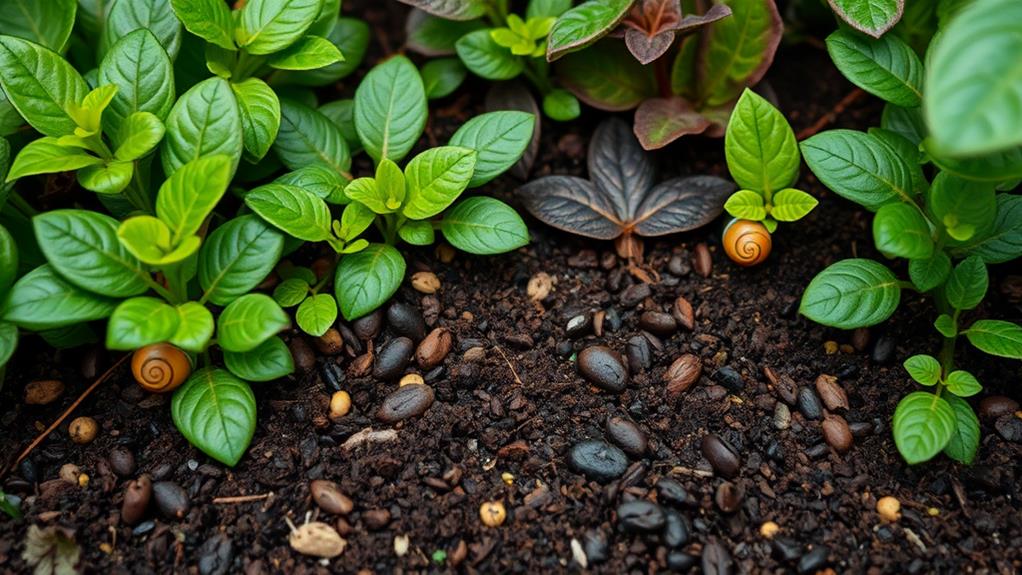
When applying natural repellents, it's important to follow specific best practices to maximize their effectiveness against slugs and snails. Using coffee can be a powerful tool, but you need to guarantee you're using the right concentration and applying it correctly.
Here are some best practices to keep in mind:
- Choose the Right Coffee Concentration: Aim for a diluted mixture, typically around 1 part coffee to 3 parts water. This concentration is effective without overwhelming your plants.
- Apply in the Evening: Slugs and snails are more active at night. Applying your coffee mixture during the evening helps target them when they're out foraging.
- Monitor Application Frequency: Reapply your coffee solution every 1-2 weeks, or after heavy rain. This keeps the repellent effective and helps maintain a barrier against these pests.
- Target Specific Areas: Focus on areas where you've noticed slug activity. Pour the coffee solution around plants or in garden beds to create an effective barrier.
Maintaining a Slug-Free Garden
To keep your garden free of slugs and snails, consistency in your approach is key. Start with garden cleanliness; regularly remove debris and weeds that can provide shelter for these pests. Your plant selection matters too; choose slug-resistant plants to minimize their appeal. Consider companion planting, pairing plants that deter slugs with those you want to protect.
Habitat modification can also help. Reduce moist areas by managing moisture levels, as slugs thrive in damp conditions. Implement organic mulch to create a barrier while also retaining soil moisture.
Nighttime monitoring is essential, as slugs are nocturnal and more active after dark. You can use physical barriers, like copper tape, around vulnerable plants to keep them at bay. Diverse planting not only enhances your garden's aesthetics but also disrupts slug pathways, making it harder for them to navigate.
Frequently Asked Questions
Can I Use Decaffeinated Coffee Against Slugs and Snails?
Decaffeinated coffee's effectiveness as a slug repellent isn't well-documented.
While some believe caffeine repels slugs, decaffeinated versions may lack the potency needed for effective pest control.
If you're seeking alternatives, consider using diatomaceous earth, copper barriers, or natural predators like birds and beetles.
These methods provide practical solutions that can help manage slug populations without relying solely on coffee.
Experimenting with various techniques can lead you to a successful outcome.
How Often Should I Apply Coffee Grounds in My Garden?
Did you know that coffee grounds can improve soil structure and promote beneficial microbes?
For ideal gardening benefits, apply coffee grounds every 4 to 6 weeks. This regular coffee grounds application enriches your soil with nitrogen and enhances drainage.
Just sprinkle a thin layer around your plants and lightly mix it into the soil. By doing this consistently, you'll notice healthier plants and improved growth in your garden over time.
Do Slugs and Snails Prefer Certain Types of Coffee?
Slugs and snails exhibit preferences for certain coffee types, particularly those with strong aromas.
They're attracted to the caffeine found in coffee, which can affect their behavior.
Research indicates that darker roasts might deter them more effectively, as the compounds in these coffees can be more potent.
If you're experimenting, try various coffee types to see which one impacts slug behavior in your garden, ensuring you create an environment that's less inviting for these pests.
Are Coffee-Based Solutions Safe for Pets and Wildlife?
When you ponder the safety of coffee-based solutions for your furry friends and local wildlife, consider the implications carefully.
While some studies suggest caffeine can be harmful to pets, the extent varies. It's wise to monitor your pet's interaction with these solutions.
Additionally, the impact on wildlife could be significant, as caffeine may disrupt their natural behaviors.
Always prioritize pet safety and be mindful of your surroundings to protect local ecosystems.
Will Coffee Harm Beneficial Insects in My Garden?
Using coffee in your garden can raise concerns about coffee toxicity and its impact on beneficial insects.
While caffeine can deter some pests, it can also affect pollinators like bees and other helpful species if used excessively.
To protect these valuable insects, you should apply coffee solutions in moderation and avoid direct contact with flowering plants.
Always monitor your garden's ecosystem to guarantee you're not inadvertently harming the beneficial insects you want to support.
Summary
By incorporating coffee into your pest control strategy, you can effectively keep slugs and snails at bay, much like using a fence to guard your garden. The caffeine disrupts their nervous systems, while coffee grounds create a protective barrier. Remember to apply your diluted coffee mixture in the evening and refresh it regularly for best results. With these simple practices, you'll maintain a thriving, slug-free garden, allowing your plants to flourish without unwelcome visitors.


